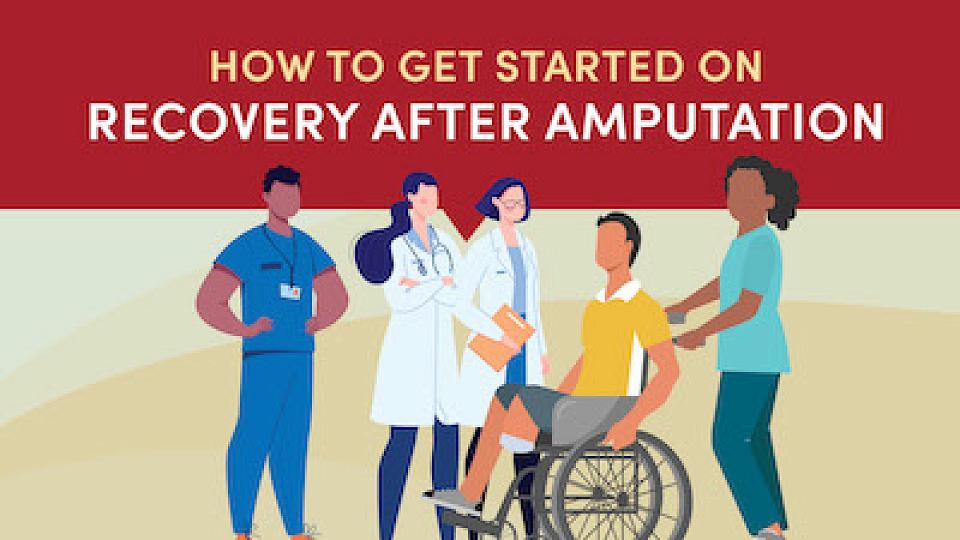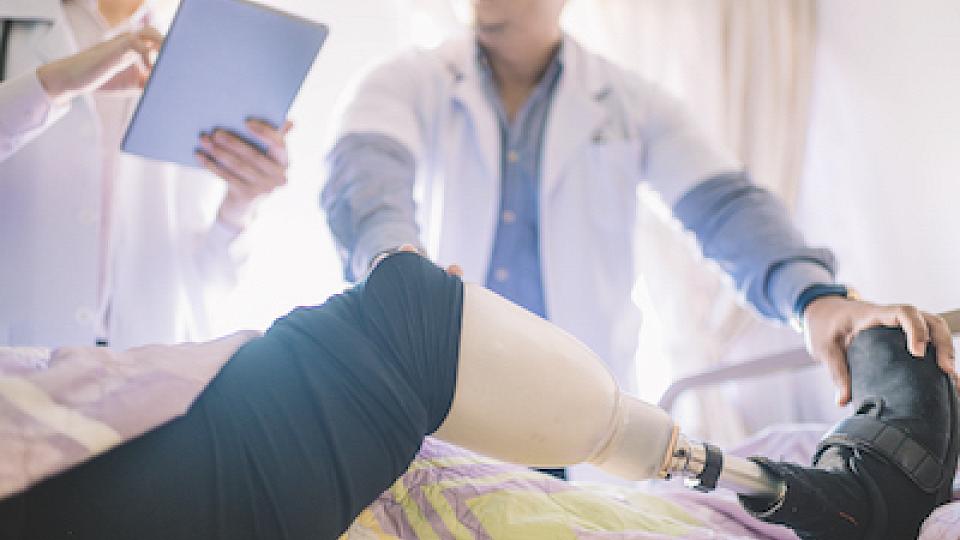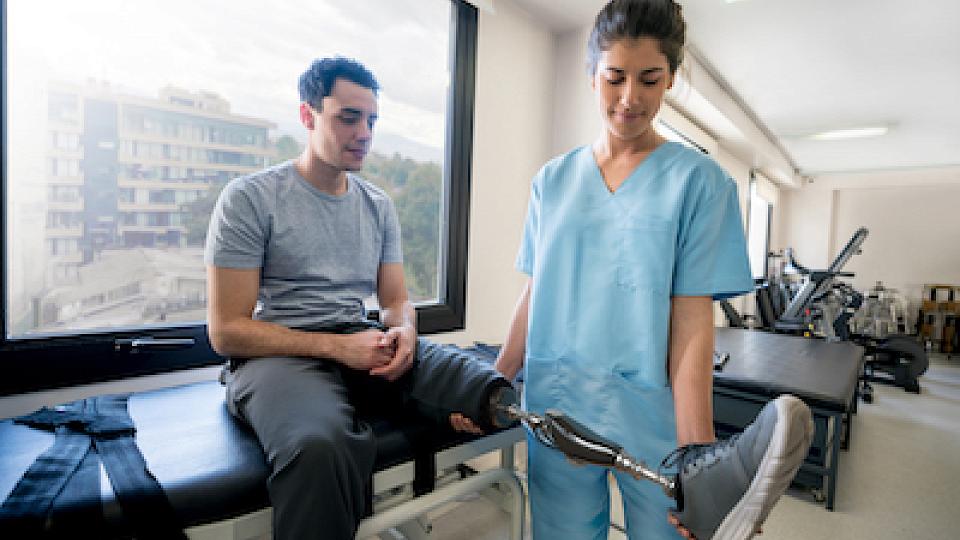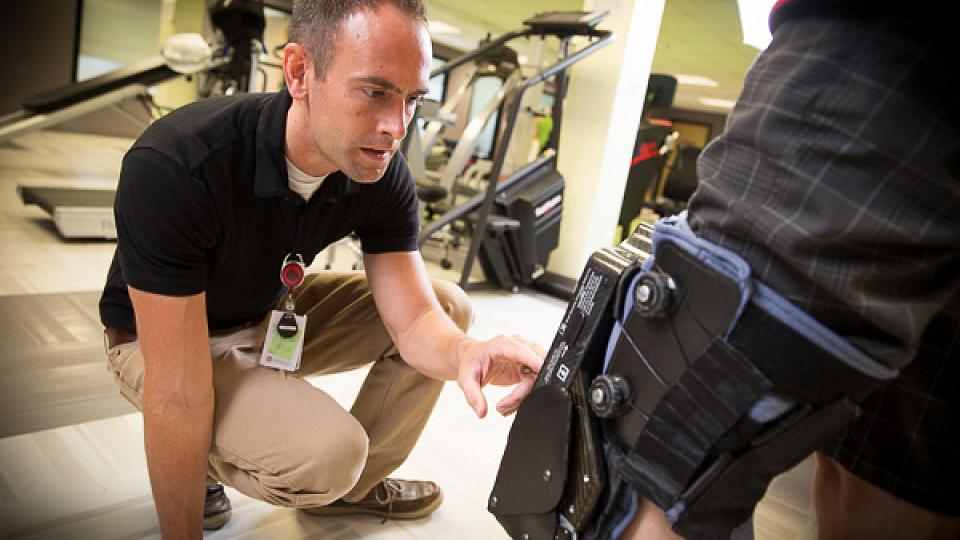
What to Expect After Amputation Surgery
While losing a limb is a life-changing experience, it's important to remember that you don't have to go through an amputation alone. Your post-operative care will involve an interdisciplinary team that will provide physical therapy, prosthesis fitting, and emotional support.
Preparing for Your Prosthesis
Rehabilitation therapy begins immediately after your surgery. Once you are home, you may be taught how to properly care for your wound and continue with exercises learned while in the hospital. A physical therapist also may help you adapt to using a wheelchair, walker, or crutches, ensuring you can efficiently and safely maneuver within your home environment. Four to six weeks after surgery, you may be fitted for a prosthetic limb.
Getting Fitted
Many amputees use a prosthetic limb that is measured and fitted by a prosthetist who designs and fabricates medical supportive devices. It’s important to select a prosthetist with whom you feel comfortable since you will have a lifelong relationship with them.
Your prosthetist will help you choose a prosthesis that matches your activity level and cosmetic requirements. During the first year after surgery, your body will undergo many changes, which will require frequent visits to your prosthetist to make sure the prosthesis fits properly.
Learning How to Use Your Prosthesis
After receiving your prosthetic limb, a physical therapist may instruct you on a therapeutic exercise program to strengthen and stretch the muscles around your hip, knee, and back. At the Craig H. Neilsen Rehabilitation Hospital, the team helps amputees regain their independence, mobility, and quality of life following an amputation. Your physical therapist also may work with you on balance, gait training, and weight shifting, which are key to building confidence and trust in using your prosthesis. A wearing schedule tailored to your lifestyle will allow you to gradually break in your prosthesis until you can wear it comfortably all day.
Finding Emotional Support
Emotional recovery is as important as physical recovery following amputation surgery. An article on psychiatric understanding and treatment of patients with amputations points out, "Amputation is a life-altering event in the lives of patients and their families... Psychological and community-based interventions such as short-term psychotherapy, cognitive behavior therapy, mindfulness meditation, relaxation training, and group psychotherapy can be helpful."
Spencer Thompson, DPT, is the team lead for the outpatient amputation program at U of U Health. He has facilitated Sky's the Limb-It, an amputee support group. "Being around other amputees provides a safe and supportive environment for individuals learning to live with limb loss,” Thompson says. “It's a huge part of the recovery process."
With physical and emotional supports in place, you'll recover with a strong body and mind you will need to cope with the challenges of amputation surgery.
Craig H. Neilsen Rehabilitation Hospital
Our hospital was built for patients—of all capabilities—to interact with their surroundings in real-time. Our smart technology enables patients greater control of the space around them and their recovery. Come experience it for yourself.

Mirror Therapy to Treat Phantom Limb Pain
After an amputation, sensations or pain where the removed limb once was can significantly interfere with a person's quality of life. Colby Hansen, MD, and Spencer Thompson, DPT, discuss how consistent therapy with a simple mirror can help to alleviate the condition.





